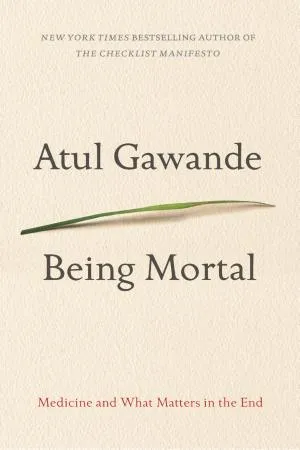
Death, of course, is not a failure. Death is normal. Death may be the enemy, but it is also the natural order of things.
The lesson seems almost Zen: you live longer only when you stop trying to live longer.
So this is the way it unfolds. In the absence of what people like my grandfather could count on—a vast extended family constantly on hand to let him make his own choices—our elderly are left with a controlled and supervised institutional existence, a medically designed answer to unfixable problems, a life designed to be safe but empty of anything they care about.
This is the consequence of a society that faces the final phase of the human life cycle by trying not to think about it. We end up with institutions that address any number of societal goals—from freeing up hospital beds to taking burdens off families’ hands to coping with poverty among the elderly—but never the goal that matters to the people who reside in them: how to make life worth living when we’re weak and frail and can’t fend for ourselves anymore.
The veneration of elders may be gone, but not because it has been replaced by veneration of youth. It’s been replaced by veneration of the independent self.
The words you use matter. According to palliative specialists, you shouldn’t say, “I’m sorry things turned out this way,” for example. It can sound like you’re distancing yourself. You should say, “I wish things were different.” You don’t ask, “What do you want when you are dying?” You ask, “If time becomes short, what is most important to you?”
It is not death that the very old tell me they fear. It is what happens short of death—losing their hearing, their memory, their best friends, their way of life. As Felix put it to me, “Old age is a continuous series of losses.” Philip Roth put it more bitterly in his novel Everyman: “Old age is not a battle. Old age is a massacre.”
In the past few decades, medical science has rendered obsolete centuries of experience, tradition, and language about our mortality and created a new difficulty for mankind: how to die.
Technological society has forgotten what scholars call the “dying role” and its importance to people as life approaches its end. People want to share memories, pass on wisdoms and keepsakes, settle relationships, establish their legacies, make peace with God, and ensure that those who are left behind will be okay.
But age no longer has the value of rarity. In America, in 1790, people aged sixty-five or older constituted less than 2 percent of the population; today, they are 14 percent. In Germany, Italy, and Japan, they exceed 20 percent. China is now the first country on earth with more than 100 million elderly people.